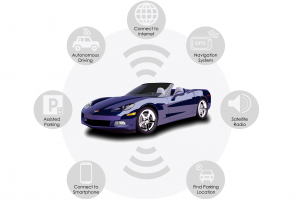What day is the true 25th birthday of Linux? Most say August 25th, the day its creator, Linus Torvalds, sent out a post to the Minix newsgroup asking for help with a new operating system he was creating. Others would say September 17th, when version 0.01 was sent to some of his close friends. Or should it be October 5th, when Linux was publically announced by Torvalds with version 0.02? [1] Continue Reading
embedded
Graphical User Interface as a Means of Interaction with Embedded Systems
Living in the digital age, it is difficult to imagine day-to-day life without regular interaction between human and technology, embedded systems in particular. From banking ATM machines to in-car infotainment systems – consumers now rely on and expect the ease and convenience of intelligent embedded devices. Convenient human-machine interaction is possible due to graphical user interfaces (GUIs) – a software interface designed to standardize and simplify the use of computer programs. Continue Reading
New Car Technologies: In-Vehicle Infotainment and Connectivity
The appearance and spread of connected cars have significantly changed the vehicle market. Automobile manufacturers show an increasing focus on developing the car’s ability to connect with the outside world and enhance the drivers’ comfort and safety. As a result, today’s car has the computing power of 20 personal computers, features about 100 million lines of programming code, and processes up to 25 gigabytes of data an hour. [1] Continue Reading
PSA Advocates Embedded Technologies for Increased Safety in Railway Systems
Safety has long been the most significant issue and biggest challenge facing the transportation industry. According to the research from Global Industry Analysts, in 2015 the value of the global railroad transport industry will reach $800 billion. As a result, the cost of failure also increases dramatically. Communication errors, visibility issues and other human errors cause the majority of rail accidents year after year. Because of this, rail embedded systems have grown exponentially over the last decade, thus dramatically reducing the number of accidents caused by human error. Continue Reading




